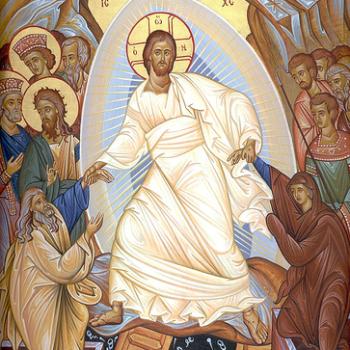Traditional Hindus do exist. There are Hindus who are caught in conservative or regressive social customs, like untouchability or mistreatment of women, which should not be underestimated. There are serious problems in Hindu society that must be addressed, but these should be examined as per their nature and cause, which is not some uniform Hindu fundamentalism but wrong practices that are often contrary to real Hindu thought.
To lump them together as problems of Hindu fundamentalism fails to examine them adequately but, rather, uses them as a scare tactic to discredit Hinduism as a whole. There are some Hindus who may believe that their religion is superior and want to keep it separate from other religions. In this regard they are no different than orthodox Christians and Muslims.
The fact is that there is no monolithic fundamentalism possible among Hindus who have no uniform belief structure. A charge of social backwardness and discriminatory attitudes can be made against a number of Hindus but this is not the same as the blanket charge of fundamentalism, which misinterprets Hinduism as a religion of militancy, which it nowhere is.
The charge of fundamentalism is usually made against various Hindu groups like the VHP (Vishwa Hindu Parishad), who do not support the caste system and other such backward customs anyway. What is called Hindu fundamentalism is in fact generally a reaction to Islamic, Christian, and Communist fundamentalisms, which are all organized according to an exclusive belief system and a strategy to take over the world.
These three fundamentalisms are attacking India from within, as well as threatening it from without. Islamic terrorist activity continues in India, particularly in Kashmir. India is now surrounded by self-proclaimed Islamic states where Hindus have become second-class citizens. Under this circumstance why should it be so wrong for Hindus in India to consider creating a state that protects rights or traditions of Hindus?
Christian and Islamic missionary activity continues strongly in many parts of India. Do these missionary groups portray Hinduism as a valid religion in its own right? They are sometimes not even teaching respect for India as a nation, as the separatist agitation they create once their members become a majority in a region reveals. Hinduism is a super tolerant religion. No other religion in the world accepts such a diversity of beliefs and practices or is so ready to acknowledge the validity of other religions.
The idea of the unity of all religions was practically invented by modern Hindus like Ramakrishna, Vivekananda, and Gandhi. As Hinduism is a super tolerant religion, even a little intolerance among Hindus is regarded as Hindu fundamentalism. And the charge of intolerance can be used to discredit Hindu groups, who are extremely sensitive to such a negative portrayal.
Throughout history Islam and Christianity, owing to the exclusive nature of their beliefs, have been generally intolerant religions (though there have been notable exceptions). They have not accepted the validity of other religious practices, and contain in themselves little diversity as compared to Hinduism.
What Christian or Muslim leaders proclaim that all religions are one or that Hindus and Buddhists have as valid a religion as they do (and therefore do not need to be converted)? As these religions are generally intolerant, their members have to be super intolerant to be called fundamentalist. Hindus often have a double standard in religion that works against them.
They try to tolerate, accept, or even appreciate exclusivism, intolerance, and fundamentalism when practiced by those of other religious beliefs. For example, which Hindus are criticizing the far more obvious fundamentalism and exclusivism among Christians and Muslims? Meanwhile any criticism by Hindus of other religions, even when justified, may be regarded by other Hindus as intolerance.
In addition, many Hindus, particularly of the modern socialist-communist variety, brand even pride in Hinduism as fundamentalism.
Another related term that we meet with in the Indian press today is that of "Hindu chauvinism," though terms such as "Christian chauvinism" or "Islamic chauvinism" do not occur in either the Indian or the Western press. Chauvinists believe in the special superiority of their particular group.
This term is used mainly relative to white chauvinists, those who think that whites are generally better than dark-skinned people, or in the case of male chauvinists or those who think that men are inherently better than women. Hindus may praise their religion, and Hindus often use flowery and exaggerated language to praise things, but few if any Hindus are claiming that Hindus own the truth and that those of other backgrounds or beliefs cannot find it.
Christians and Muslims routinely believe that only members of their religion go to heaven and everyone else, particularly idol worshiping people like Hindus, go to hell. Which Hindus chauvinists have similar ideas? The Vatican recently told its monks and nuns not to experiment with Yoga and Eastern forms of religious practice, which it branded as selfish, false, and misleading.




